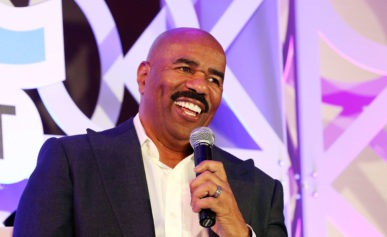When I teach news writing, I talk to my students about the art of interviewing, how to get themselves out of the way and let a story unfold—lead by smart, focused questions that allow readers/listeners/viewers to make up their own minds about the information presented.
Fox Network religion correspondent Lauren Green recently provided a perfect illustration of how not to do that. Her interview with a scholar was so cringe-worthy that many of my colleagues in the academy want to use the clip of Green’s interview to teach students about avoiding bias, not leading sources to say what you want or generate a particular outcome.
Aslan, who has four degrees, including a master’s in theological studies and a PhD in the sociology of religion, was on Fox’s “Spirited Debate” to promote his latest book, “Zealot: The Life and Times of Jesus of Nazareth.”
By way of background, the Iranian-born Aslan fled the Islamic Revolution in 1979 with his family and relocated to the U.S. As a teenager, he converted to Christianity, but later returned to Islam. He said he is married to a Christian and his brother-in-law is an evangelical minister.
While he has written about other religions, Aslan said he has spent 20 years studying the New Testament and has written four books about that section of the Bible.
Green asked Aslan why he, a Muslim, would write a historical book about Jesus—the implication being that as a Muslim this was somehow unusual and that some might suspect an ulterior motive in his choice of subjects.
Fair enough. There may be some who are unfamiliar with Aslan’s scholarship and who might wonder that very thing. Once his credentials were established, however, Green kept pounding the theme and then said that Aslan’s book differed from a number of Christian scholars.
“I am a historian with a PhD in the history of religion,” Aslan said, noting that “my job as a scholar is to write about religions.”
He said that his book contained 100 pages of notes and referenced 1,000 books written by scholars who both agreed and disagreed with Aslan.
The author tried to get into the meat of the book, which he said looked at Jesus, in part, as the leader of a movement that was so threatening to the political authorities of his state that he was arrested, condemned and crucified.
Jesus, he said, was treated as an enemy of the state and executed like a traitor.
Each time Aslan tried to discuss his findings and conclusions, Green took him back to the question of whether he could be a fair and unbiased judge of Jesus by quoting writers and pundits who attacked the book.
From an instructional point of view, however, Green pressed too hard on one angle and lost the opportunity to make her interview richer and more complete. Further, she drew a conclusion that the facts did not support. She treated a question from a viewer as if it were a challenge from a scholar, asking if Aslan could be objective about the “founder” of Christianity because the author was a Muslim.
To be sure, non-Muslim scholars have written about Islam, just as white reporters covered the Civil Rights Movement, as straight people have written about gay issues and the physically healthy about the physically challenged.
Should journalism rethink that?
We won’t even get into the argument of whether Jesus founded Christianity or St. Paul – who took Jesus’ message which aimed to prepare Jews for a Messianic Kingdom, and expanded it for all who believed in the Christ spirit.
“As a journalist who’s covered books and publishing for more than 25 years, I’ve always refrained from commenting on books that I haven’t read myself,” said author, editor and scholar Jabari Asim, associate professor of writing, literature and publishing at Emerson College in Boston.
“Unlike the Fox interviewer, I’ve actually read Aslan’s book. I found it to be provocative, persuasive and calmly reasoned. While some may find his conclusions challenging, few should find them offensive or merely arguments for the sake of argument,” Asim said. “As he states in the interview, his book is less a takedown of Christian tenets than an investigation of the historical Jesus, whom Aslan clearly admires.”
It wasn’t unfair for Green to raise the question initially about Aslan’s interest in Christianity. It was unfair that it was basically the only question she asked, in several different ways.
“The philosophical backbone of [Green’s] question is that it would be impossible for someone to write about Jesus without some kind of faith-based prejudice,” said Aslan, who told Talking Points Memo that he wrote the book as an academic, not from the perspective of his faith.
“It’s weird to all of a sudden talk about it as though only practitioners of a faith can write about the prophets of that faith,” he said. “If that were true, there would be a lot fewer Islam books out there.”
The interview went viral, perhaps propelling Aslan’s book to No. 2 on Amazon.
There may be no such thing as bad publicity, but there is nothing good to be said for bad journalism.
Jackie Jones, a journalist and journalism educator, is director of the career transformation firm Jones Coaching LLC and author of “Taking Care of the Business of You: 7 Days to Getting Your Career on Track.”

